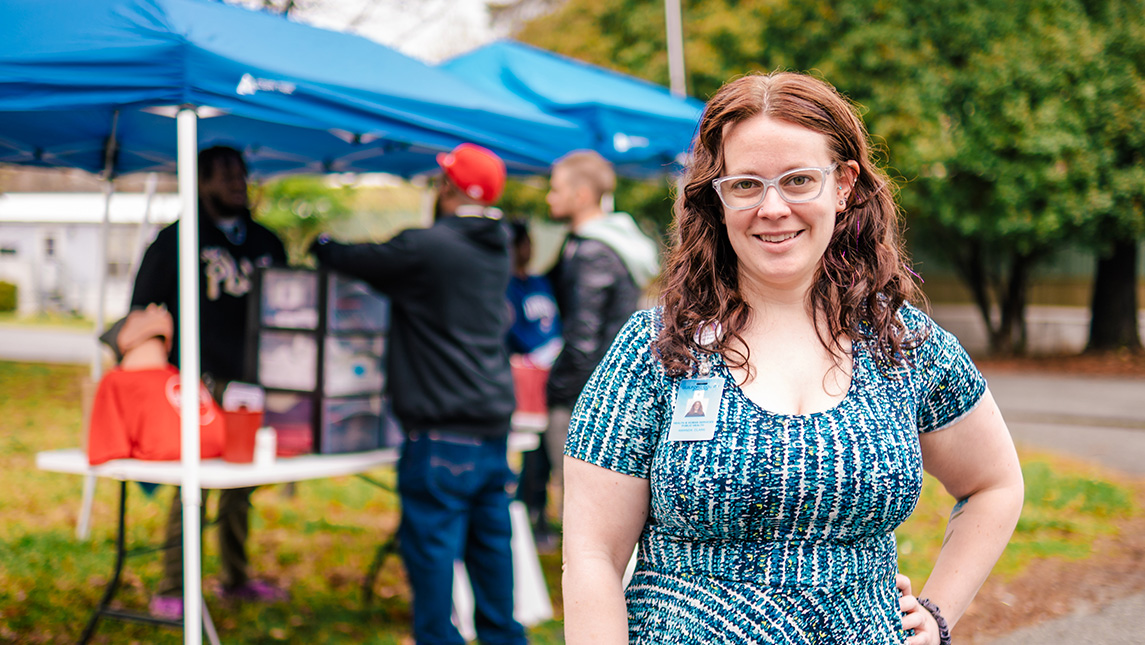For one UNC Greensboro (UNCG) alumna, her education was fueled by a curiosity for how she avoided a dark path.
Amanda Clark ’14, ’18 explains: “As a millennial, I went to middle school and high school in the height of the OxyContin era. I grew up in rural Chatham County with a lower socioeconomic status. I experienced childhood trauma and mental health issues. Yet I went on to college while many of my classmates lost their lives or became incarcerated because of addiction and mental health struggles.”
Clark struggled with questions: “Why them and not me? What happened? What was the difference there? I wanted to learn more about why this was a path they ended up going down, but I did not.”
The search for answers led Clark to a sociology major, a Master’s in Public Health, and a career-long discovery into the social determinants of health. Combining her passions with a UNCG education has yielded a career that recently peaked when she was named Guilford County Public Health’s first Drug and Injury Prevention Manager. It’s a position where she will lead the county’s opioid recovery effort.
…
Clark looks forward to working with nonprofits like GCSTOP (Guilford County Solution to the Opioid Problem), which is a UNCG program that partners with Guilford County Emergency Services. GCSTOP is primarily manned by interns from UNCG’s social work and public health departments.
GCSTOP director, Mike Thull, is excited to work with a UNCG alumna. He hopes that together, they can take advantage of opioid settlement funds to sustain GCSTOP’s community education and syringe and Naloxone distributions.
“Folks that live with a substance use disorder have historically not been treated very well. GCSTOP’s mission is to advocate for the people that we interact with. And then Amanda must also advocate for us,” Thull explains. “It’s a little chain, so to speak, to help make sure that the opioid settlement funds that are coming to the county go to the folks that are most impacted by opioid use disorder.”
